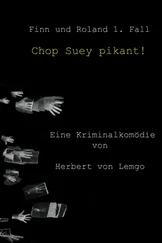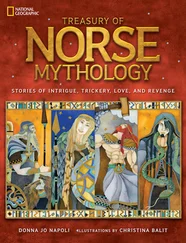Dorthe Nors - Karate Chop - Stories
Здесь есть возможность читать онлайн «Dorthe Nors - Karate Chop - Stories» весь текст электронной книги совершенно бесплатно (целиком полную версию без сокращений). В некоторых случаях можно слушать аудио, скачать через торрент в формате fb2 и присутствует краткое содержание. Год выпуска: 2014, ISBN: 2014, Издательство: Graywolf Press, Жанр: Современная проза, на английском языке. Описание произведения, (предисловие) а так же отзывы посетителей доступны на портале библиотеки ЛибКат.
- Название:Karate Chop: Stories
- Автор:
- Издательство:Graywolf Press
- Жанр:
- Год:2014
- ISBN:9781555970857
- Рейтинг книги:5 / 5. Голосов: 1
-
Избранное:Добавить в избранное
- Отзывы:
-
Ваша оценка:
- 100
- 1
- 2
- 3
- 4
- 5
Karate Chop: Stories: краткое содержание, описание и аннотация
Предлагаем к чтению аннотацию, описание, краткое содержание или предисловие (зависит от того, что написал сам автор книги «Karate Chop: Stories»). Если вы не нашли необходимую информацию о книге — напишите в комментариях, мы постараемся отыскать её.
A Public Space
Karate Chop
Karate Chop: Stories — читать онлайн бесплатно полную книгу (весь текст) целиком
Ниже представлен текст книги, разбитый по страницам. Система сохранения места последней прочитанной страницы, позволяет с удобством читать онлайн бесплатно книгу «Karate Chop: Stories», без необходимости каждый раз заново искать на чём Вы остановились. Поставьте закладку, и сможете в любой момент перейти на страницу, на которой закончили чтение.
Интервал:
Закладка:
But what bothered Aunt Ellen was afterward when the mailman had gone and Grandfather went out to the rabbits. Grandmother had that look on her face. She stood at the kitchen sink with one of Aunt Ellen’s vanilla cookies in her mouth and said it had no taste.
“She could be like that,” Aunt Ellen had said so often, and he doesn’t know how many times he saw his mother nod and put in her two cents. “You remember what she was like, don’t you?” they would say, and scrutinize him.
He remembers his grandmother well. She was small, almost like a child, though very round. She had five children, and her sons left home as soon as they could. He doesn’t remember Grandfather, and to him Grandmother was a woman who lived in an apartment building in town and grew increasingly odd, while Aunt Ellen and his mother took turns making dinner for her. Certain smells made him think of her, smells that linger in the bathroom, or bergamot candy in the kitchen. Or the sight of dish mats and the plastic souvenirs his mother and Aunt Ellen brought home from vacations. And her hands, mostly her hands. They were as small as a little girl’s and never at rest. Small and fluttering. How strange to think it was those hands that did it. The thing his mother claimed they did.
Another story they liked to tell was about the last years of the war when the tethered cow had to be moved. His mother loved it when Aunt Ellen told the story. She would light up a cigarette and sit nodding with it. It happened when the Allies attacked the landing strip and the Germans retaliated. Grandmother was afraid the cow tied up in the meadow would be killed. So Aunt Ellen had to go and move it. Of course, she was afraid, but Grandmother insisted the cow be brought to safety. Naturally, the animal was terrified, so it galloped around with Aunt Ellen hanging on to the rope behind it. The planes were diving in over the trees and the southern end of the potato field. Grandmother crawled on all fours to the gable end of the house to find shelter from the shrapnel.
“There she was with her ass in the air barking out instructions about which way I should run.”
That’s how Aunt Ellen told the story, and then she would grimace and stress that the secret to understanding Grandmother was that she wasn’t very intelligent. She was stupid, Aunt Ellen would say, and his mother would snigger and Aunt Ellen would look at her sister with a flicker in her eye.
“That’s the way she was. Mother was stupid.”
It always went quiet between them then. Aunt Ellen would change the subject, or decide it was time to go home. She lived in the building opposite and the last thing he and his mother always did before they went to bed was stand at the window of the living room and wave to her.
All the time his mother lay sick, she and Ellen never spoke of Grandmother and her ways. But then his mother died, and after the funeral the subject came up between him and Aunt Ellen. It was his initiative. He took his aunt to a cafeteria and asked her about the old days. He assumed it was for want of anything better, but she told the story about the cow and the air raid once again.
“She was so stupid,” said Aunt Ellen, and he could see it was like the bottom fell out of her because his mother no longer sat opposite to put in her two cents. “I’m the only one left now,” she said in a small voice.
When she began to cry he ordered a slice of cake for her, and when she took the first bite he asked if she could remember them having rabbits during the war. Aunt Ellen remembered it well, but they all got sick from some disease, she said. He nodded, and Aunt Ellen got into a fluster about who was paying for the cake, and then it turned out she couldn’t eat it anyway. Afterward he took her home. She wanted to hold his hand all the way, and when the street door closed behind her he stood outside staring at it.
Grandmother died when he was twenty-five, so his memories of her are clear. When he was growing up his mother and Aunt Ellen would sometimes leave him with Grandmother and go to the movies together. Memories can cover each other up, but he especially remembers one time he went over to her place with some leftovers of Aunt Ellen’s. She was going to give him a cookie, just as she always did, but first she needed to go to the bathroom. She went herself, but when she was there she called for him. She said that because she was old she could no longer reach. He wiped her, and as he did so there came a small sound from inside her. It made him look at her, and the way she looked back at him made him drop the toilet paper into the bowl. He told her she could pull up her underwear by herself. But she couldn’t.
“I’ve nothing on under my dress,” she said.
He helped her into the living room and sat her down in the chair where she always sat. Then he laid a blanket over her bare legs. He asked her when the home help was coming. But the home help had already been, his grandmother told him, and reached for a cookie.
She had that look in her eye. The look Aunt Ellen and his mother always talked about before turning away, and he remembers how he hung around the soccer fields for a long time before going home. When he got back, his mother and Aunt Ellen were in the kitchen smoking cigarettes and they asked him how Grandmother was. He said she was fine and she sent her love. He sat there at the end of the table, and afterward he stood as he always did, together with his mother, and waved across the lawn to Aunt Ellen who stood at her window and waved back. It wouldn’t pay to tell. His mother didn’t care for Grandmother, and yet she was always tagging along behind her. Every day, week in and week out, through one story after another. Mother and Aunt Ellen tagging along.
One of the episodes his mother and Aunt Ellen talked about most often as an example of how unreasonable Grandmother was concerned one Sunday during the war when his mother and Aunt Ellen had spent all day making paper cuttings. It was one of the stories he had heard told the most and they told it in exactly the same way. It was about how they had been cutting all day until the tips of their fingers were red and sore. Then they had put all their fine paper cuttings onto a string and joined them together in an intricate pattern to make a mobile. They hung the mobile up above the dining table, only for the two brothers who had yet to leave home to get the idea of using it as a target. His mother and Aunt Ellen tried to get Grandmother to make them stop, but all she did was sit with her coffee cup raised to her mouth and giggle.
“She giggled?” he asked.
“Yes, she damn well did.”
And he imagined how Grandmother had sat there with a sugar cube between her teeth, observing her daughters with amusement as they ran around the table in tears.
Later, Grandmother died, and now his mother too, and he was over forty and Aunt Ellen had looked like a frail bird in the doorway when he took her home after the funeral. It wasn’t enough to close the circle, he thought to himself as he crossed over the lawns between the buildings to take the back stairs up to his place. The apartment felt empty. He thought about his mother as he sat in the kitchen waiting for the coffee to brew. She had still seemed alert enough, and he remembered how everything around her got so infected at the end. It was like she had been leaking. Maybe it was the cancer, but he thought she smelled sour, and she felt around with her hands. All the time, back and forth over the duvet, her fingers like stalks. She told him all kinds of little stories. How he had bitten her when he was small. How she regretted not having moved farther away. She told him about his grandfather, and how she loved to follow him around as a child and watch him as he sealed the potato sacks. Grandfather talked to the cows when he gave them fodder and washed their udders. Grandfather kept rabbits at the back of the cowshed. They were white and brown, and bred well during the war.
Читать дальшеИнтервал:
Закладка:
Похожие книги на «Karate Chop: Stories»
Представляем Вашему вниманию похожие книги на «Karate Chop: Stories» списком для выбора. Мы отобрали схожую по названию и смыслу литературу в надежде предоставить читателям больше вариантов отыскать новые, интересные, ещё непрочитанные произведения.
Обсуждение, отзывы о книге «Karate Chop: Stories» и просто собственные мнения читателей. Оставьте ваши комментарии, напишите, что Вы думаете о произведении, его смысле или главных героях. Укажите что конкретно понравилось, а что нет, и почему Вы так считаете.












